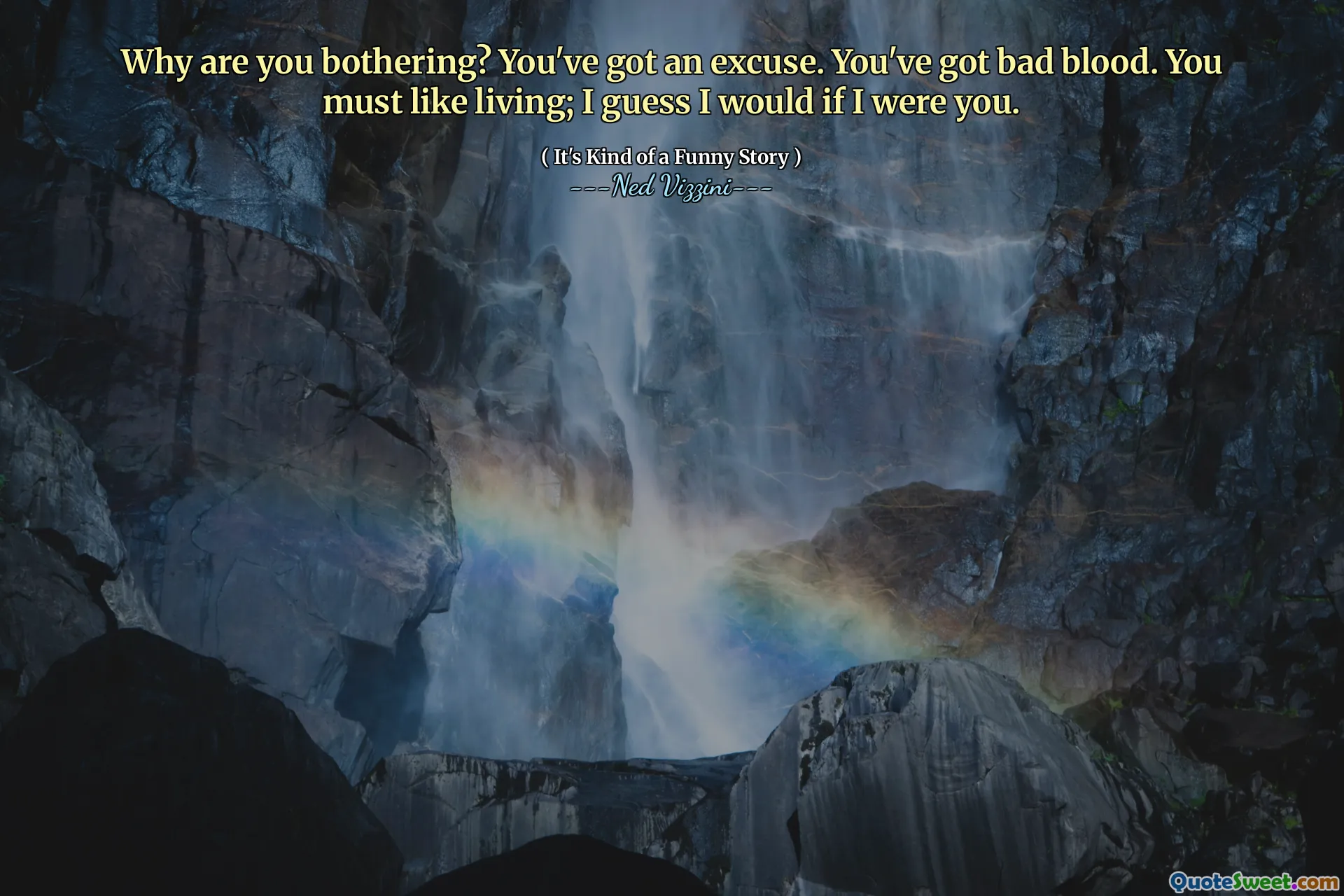
Why are you bothering? You've got an excuse. You've got bad blood. You must like living; I guess I would if I were you.
This quote draws attention to the complex ways in which people justify their behaviors and existence. It suggests a sense of judgment or frustration towards someone who may be perceived as unmotivated or burdened by their circumstances. The line about having an 'excuse' and 'bad blood' hints at a deeper history or turmoil that the individual might be carrying, possibly making their struggles seem more ingrained or unavoidable. The rhetorical question at the end, 'You must like living; I guess I would if I were you,' implies a critique — perhaps of complacency or acceptance of a difficult reality. It challenges the listener or reader to reflect on their own attitude towards hardship and endurance. In a broader context, this quote encourages honest introspection: do we stubbornly persist with our choices because we genuinely want to, or are we just settling into certain patterns because they feel familiar or easier than change? It also touches on the human tendency to justify actions or attitudes, sometimes skipping over the possibility of growth or different perspectives. Embracing discomfort and adversity can be vital for personal development, yet it’s often easier to accept excuses or blame circumstances. This quote provokes us to question the authenticity of our perseverance, scrutinize our reasons for enduring hardships, and consider whether we find comfort in resignation or in making active changes. It embodies a raw, candid challenge to the notion of resignation versus resilience, making it a compelling reflection on human behavior andmental toughness.











